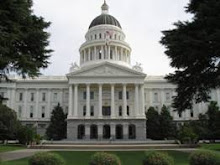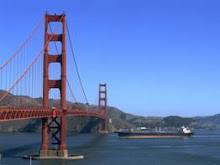THE AFTERSHOCKS OF SAN FRANCISCO’S RECENT ELECTION: PAID SICK LEAVE ORDINANCE GOES INTO EFFECT ON FEBRUARY 5, 2007
On November 7, 2006, San Francisco voters passed the “Paid Sick Leave Ordinance.” This ordinance is set to take effect on February 5, 2007. While many employers throughout California took an amused glance at the Ordinance, the aftershocks of this Employment Law earthquake are now being felt across the country.
The Epicenter: The City and County of San Francisco
Generally, the Ordinance provides that all employers with one or more full-time, part-time, or temporary workers employed within the City and County of San Francisco must provide those employees with paid sick leave coverage. Employers with ten or more employees must enable their employees to earn up to 72 hours of paid sick leave per year, while those with less than ten employees must provide up to 40 hours per year. An employee accrues one hour of sick leave for every 30 hours of work, up to his or her maximum allocation. All accrued leave can be used not only for the employee’s own illness, but for the illness of a parent, child, sibling, grandparent, grandchild, spouse, registered domestic partner, or other related individuals as broadly defined in the Ordinance. While employees who do not receive paid sick leave on equally or more favorable terms begin accruing paid sick leave on February 5, 2007, individuals employed after that date must wait for 90 days to begin accrual.
The Ordinance alters existing California law as it pertains to San Francisco employers. Section 233 of the California Labor Code, which governs the administration of sick leave, applies only to those California employers who choose to provide sick leave; however, it does not require employers to do so. Conversely, the Ordinance affirmatively mandates employers to provide sick leave to their San Francisco employees, and authorizes the enactment of oversight and enforcement procedures.
In addition, employers must post a notice informing employees of their rights in a “conspicuous place at the workplace or job site.” The posting must be in English, Spanish, Chinese, and any other language spoken by at least five percent of the employees at the workplace or job site. The City’s Office of Labor Standards Enforcement is charged with making available translated versions of the notice.
The Ordinance authorizes civil suits by the Office of Labor Standards Enforcement, the City Attorney, any person “aggrieved by a violation,” and those “acting on behalf of the public.” Recovery extends to all “legal or equitable relief as may be appropriate to remedy the violation,” including reinstatement, back pay, the payment of any sick leave unlawfully withheld, liquidated damages, injunctive relief, and reasonable attorneys’ fees.
The Aftershocks: Infecting Employers Statewide
While seemingly San Francisco specific, Employers will be surprised to know that San Francisco's Office of Labor Standards Enforcement takes the position that paid sick leave must accrue when any employee performs any work in San Francisco, even if only temporarily. Once the employee works 30 hours in San Francisco, no matter how long it takes them to do so, the employee accrues an hour of paid sick leave. Surprisingly, the employee is then entitled to only take paid sick leave when scheduled to work in San Francisco.
For example, assume an employee based in Sacramento travels to San Francisco for a morning meeting. Assuming the employee is in San Francisco for a total of three hours, the employer is required by the Ordinance to track that time to determine when the employee earns sick leave after 27 more hours of performing work in San Francisco. Other common examples requiring tracking include a delivery driver who spends 5 hours out of 8 hours delivering in San Francisco per day, a salesperson whose territory includes San Francisco, and an employee who attends a work mandated conference or convention in San Francisco. In each case, the employer must track and total the hours worked in San Francisco and then credit one hour's sick pay for each 30 hours of work within the City and County of San Francisco. In addition, the San Francisco Office of Labor Standards Enforcement takes the position these new rules apply to both non-exempt and exempt employees.
The burdens on employers without paid sick leave are obvious. Many employers who have some employees working periodically in the City or County of San Francisco may have to consider how to track their employees’ time while they are working in San Francisco. While legal challenges to this Ordinance are likely, it will took effect on February 5, 2007. If you have not accounted for this change, we have work to do!
Tuesday, February 27, 2007
THE DLSE CLARIFIES POSITION REGARDING PARTIAL DAY DEDUCTIONS FOR EXEMPT EMPLOYEES
The DLSE Has now clarified its position on partial day deductions for exempt employees
The California Division of Labor Standards and Enforcement (DLSE) recently updated its Enforcement Policies and Interpretations Manual to authorize employers to make deductions from an exempt employee's accrued vacation or paid time off (PTO) bank for partial day absences under certain circumstances. This change follows a California Court of Appeal’s decision rendered in July 2005. See, Conley v. Pacific Gas & Electric Co., 131 Cal. App. 4th 260 (Ca. App. 1st Dist., 2005).; DLSE Enforcement Policies and Interpretations Manual sec. 51.6.15.4.)
The DLSE's year long delay in accepting the court's holding caused many California employers to be confused and/or extremely cautious about changing their policies on partial day absences for exempt employees. However, in July 2006, the DLSE finally amended its manual (section 51.6.15.4) and adopted the Conley Court's decision. The DLSE Manual now provides that employers may deduct partial day absences from an exempt employee's accrued vacation/PTO bank for employee absences of 4 hours or more. These rules do not apply to sick leave banks.
Employers should keep in mind the current state of the law on partial day deductions is based on one Court of Appeal decision and the DLSE’s Enforcement Manual. While most courts consider the DLSE’s position on a wage and hour issue to be persuasive, it is not binding. In addition, different California Courts of Appeal may rule differently than the First District in Conley, setting up a California Supreme Court showdown. Employers should contact employment law counsel before making any partial day deductions from exempt employees’ vacation or PTO bank.
The DLSE Has now clarified its position on partial day deductions for exempt employees
The California Division of Labor Standards and Enforcement (DLSE) recently updated its Enforcement Policies and Interpretations Manual to authorize employers to make deductions from an exempt employee's accrued vacation or paid time off (PTO) bank for partial day absences under certain circumstances. This change follows a California Court of Appeal’s decision rendered in July 2005. See, Conley v. Pacific Gas & Electric Co., 131 Cal. App. 4th 260 (Ca. App. 1st Dist., 2005).; DLSE Enforcement Policies and Interpretations Manual sec. 51.6.15.4.)
The DLSE's year long delay in accepting the court's holding caused many California employers to be confused and/or extremely cautious about changing their policies on partial day absences for exempt employees. However, in July 2006, the DLSE finally amended its manual (section 51.6.15.4) and adopted the Conley Court's decision. The DLSE Manual now provides that employers may deduct partial day absences from an exempt employee's accrued vacation/PTO bank for employee absences of 4 hours or more. These rules do not apply to sick leave banks.
Employers should keep in mind the current state of the law on partial day deductions is based on one Court of Appeal decision and the DLSE’s Enforcement Manual. While most courts consider the DLSE’s position on a wage and hour issue to be persuasive, it is not binding. In addition, different California Courts of Appeal may rule differently than the First District in Conley, setting up a California Supreme Court showdown. Employers should contact employment law counsel before making any partial day deductions from exempt employees’ vacation or PTO bank.
The U.S. Department of Labor Determines Restaurants Cannot Deduct for Uniform Cleaning
The United Stated Department of Labor (“DOL”) recently issued a Wage and Hour Opinion Letter, FLSA 2006-21, (June 9, 2006), prohibiting restaurant owners from deducting the costs associated with laundering uniforms from staffs’ wages. The opinion letter stated that “no portion of an employee’s tips may be kicked back to the employer to cover the cost of uniform laundering,” and “even if the tips actually received exceed the maximum tip credit the employer needs to claim toward payment of the minimum wage, these excess tips are not deemed to be wages for purposes of the FLSA.”
The DOL further stated “A policy that employees must wear clean uniforms while on duty and the assurance that servers will always appear in clean, freshly pressed uniform tops, is primarily a convenience and benefit to the employer. As such, the cost of the laundering and pressing of the garment is a cost of doing business that may not be imposed on the employees if doing so would reduce their wages below minimum wage.”
While the DOL Opinion Letter specifically applies to restaurants, there is likely no reason the same standard would not be applied by the government to different work environments, such as security personnel, maintenance workers, or other similar occupations. Employers should be mindful to review their policies regarding uniforms in light of the DOL’s latest Opinion Letter.
The United Stated Department of Labor (“DOL”) recently issued a Wage and Hour Opinion Letter, FLSA 2006-21, (June 9, 2006), prohibiting restaurant owners from deducting the costs associated with laundering uniforms from staffs’ wages. The opinion letter stated that “no portion of an employee’s tips may be kicked back to the employer to cover the cost of uniform laundering,” and “even if the tips actually received exceed the maximum tip credit the employer needs to claim toward payment of the minimum wage, these excess tips are not deemed to be wages for purposes of the FLSA.”
The DOL further stated “A policy that employees must wear clean uniforms while on duty and the assurance that servers will always appear in clean, freshly pressed uniform tops, is primarily a convenience and benefit to the employer. As such, the cost of the laundering and pressing of the garment is a cost of doing business that may not be imposed on the employees if doing so would reduce their wages below minimum wage.”
While the DOL Opinion Letter specifically applies to restaurants, there is likely no reason the same standard would not be applied by the government to different work environments, such as security personnel, maintenance workers, or other similar occupations. Employers should be mindful to review their policies regarding uniforms in light of the DOL’s latest Opinion Letter.
California Supreme Court Applies Proposition 64 To Pending Cases, Clarifying Who Has Standing to Sue Under California's Unfair Competition Law
On July 24, 2006, the California Supreme Court issued two opinions involving what standing is required for private litigants attempting to pursue claims under California's Unfair Competition Law (the "UCL"): Californians for Disability Rights v. Mervyn's, No. S131798 and Branick v. Downey Savings and Loan Association, No. S132433 (July 24, 2006).
In November 2004, California voters approved Proposition 64, legislation attempting to stop abuse of the UCL by restricting standing under the Act. Before Proposition 64, a private litigant could file suit under the UCL on behalf of "the general public" regardless of whether or not he or she had suffered any actual injury or damage by the defendant. Proposition 64 stated that a private litigant can only file suit under the UCL when he or she has suffered actual harm.
The question before the California Supreme Court was whether the “standing” requirement of Proposition 64 would be applied to UCL cases filed before Proposition 64 was passed. The California Supreme Court ruled in Californians for Disability Rights v. Mervyn's that Proposition 64 applies to pending cases, but that a plaintiff who lacks any actual harm and therefore standing under the UCL can attempt to amend his or her lawsuit to add a plaintiff who has standing.
The California Supreme Court acknowledged that generally statutes operate prospectively, absent a clear indication that the voters intended otherwise. The Court observed California voters had not indicated that Proposition 64 was to operate retroactively. The Court nonetheless concluded that Proposition 64 did apply to cases pending at the time it took effect, reasoning that a statute is only applied retroactively when the application of the statute would impose new or different liabilities based upon past conduct. The Court found Proposition 64 "left entirely unchanged the substantive rules governing business and competitive conduct. Nothing a business might lawfully do before Proposition 64 is unlawful now, and nothing earlier forbidden is now permitted." Thus the Court found applying Proposition 64 to cases pending at the time it was passed would not constitute the retroactive application of a statute.
The California Supreme Court in Downey also added that plaintiffs could amend their complaint to substitute in someone who had actually suffered actual injury. Such substitution is to be allowed provided that the new plaintiff does not "state facts which give rise to a wholly distinct and different legal obligation against the defendant." Furthermore, the Court held that if the new plaintiff's claim rests on the same general set of facts and injury as the original plaintiff's claim, the new plaintiff's claim will typically "relate back" to the filing of the original complaint. Therefore, the new plaintiff would be able to seek damages for the four-year period statute of limitations period preceding the filing of the original complaint – not just four years from the date s/he was substituted into the case.
In past years it has been commonplace for plaintiff's attorneys to include a UCL claim when asserting the violation of certain statutes, usually alleged violations of California’s Labor Code. The California Supreme Court's decisions will curtail the abuse of the UCL by union leaders and other “puppet plaintiffs,” absent their ability to locate a current or former employee who feels he or she has suffered actual harm. While the Court’s decision is certainly a victory for California’s employers, it is still no substitute for careful examination and adherence to California’s complex employment laws.
On July 24, 2006, the California Supreme Court issued two opinions involving what standing is required for private litigants attempting to pursue claims under California's Unfair Competition Law (the "UCL"): Californians for Disability Rights v. Mervyn's, No. S131798 and Branick v. Downey Savings and Loan Association, No. S132433 (July 24, 2006).
In November 2004, California voters approved Proposition 64, legislation attempting to stop abuse of the UCL by restricting standing under the Act. Before Proposition 64, a private litigant could file suit under the UCL on behalf of "the general public" regardless of whether or not he or she had suffered any actual injury or damage by the defendant. Proposition 64 stated that a private litigant can only file suit under the UCL when he or she has suffered actual harm.
The question before the California Supreme Court was whether the “standing” requirement of Proposition 64 would be applied to UCL cases filed before Proposition 64 was passed. The California Supreme Court ruled in Californians for Disability Rights v. Mervyn's that Proposition 64 applies to pending cases, but that a plaintiff who lacks any actual harm and therefore standing under the UCL can attempt to amend his or her lawsuit to add a plaintiff who has standing.
The California Supreme Court acknowledged that generally statutes operate prospectively, absent a clear indication that the voters intended otherwise. The Court observed California voters had not indicated that Proposition 64 was to operate retroactively. The Court nonetheless concluded that Proposition 64 did apply to cases pending at the time it took effect, reasoning that a statute is only applied retroactively when the application of the statute would impose new or different liabilities based upon past conduct. The Court found Proposition 64 "left entirely unchanged the substantive rules governing business and competitive conduct. Nothing a business might lawfully do before Proposition 64 is unlawful now, and nothing earlier forbidden is now permitted." Thus the Court found applying Proposition 64 to cases pending at the time it was passed would not constitute the retroactive application of a statute.
The California Supreme Court in Downey also added that plaintiffs could amend their complaint to substitute in someone who had actually suffered actual injury. Such substitution is to be allowed provided that the new plaintiff does not "state facts which give rise to a wholly distinct and different legal obligation against the defendant." Furthermore, the Court held that if the new plaintiff's claim rests on the same general set of facts and injury as the original plaintiff's claim, the new plaintiff's claim will typically "relate back" to the filing of the original complaint. Therefore, the new plaintiff would be able to seek damages for the four-year period statute of limitations period preceding the filing of the original complaint – not just four years from the date s/he was substituted into the case.
In past years it has been commonplace for plaintiff's attorneys to include a UCL claim when asserting the violation of certain statutes, usually alleged violations of California’s Labor Code. The California Supreme Court's decisions will curtail the abuse of the UCL by union leaders and other “puppet plaintiffs,” absent their ability to locate a current or former employee who feels he or she has suffered actual harm. While the Court’s decision is certainly a victory for California’s employers, it is still no substitute for careful examination and adherence to California’s complex employment laws.
Wage & Hour: Companies not liable for subcontractor’s failure to pay correct wages
On April 18, 2006, the California Court of Appeal in Violante v. Communities Southwest Dev. & Constr. Co. held that employees of subcontractors on public works projects may not sue parties other than their direct employer for alleged violations of California prevailing wage laws. There, construction workers alleged thousands of workers “were paid less than prevailing wages as required by California Labor Code section 1770 et seq. for public works projects." The class action complaint alleged violations of Labor Code section 1774, breach of contract and unfair business practices against numerous defendants, including the contractor that hired plaintiffs’ employer, a subcontractor on the project.
The Court found that "Plaintiffs have a right of action against the subcontractor, their direct employer . . . . But the Labor Code nowhere requires the contractor to pay prevailing wages to a subcontractor’s employee or permits a subcontractor’s employee to sue the prime contractor when the subcontractor fails to pay prevailing wages." Also, where there is no violation of the underlying prevailing wage law, the Court ruled plaintiffs could not maintain unfair business practices or unfair competition claims under the Business and Professions Code.
Liability for prevailing wages likely will continue to be a very hot legal issue for developers and contractors. For years, non-union contractors have been under siege with lawsuits initiated by Unions in an attempt to force recognition through settlement, rather than through organization. One unsettled question is how this opinion will affect California Labor Code section 2810, which prohibits contractors from entering into any contract that it knows or should have known does not include sufficient funds to allow the subcontractor to comply with all applicable employment law provisions.
Our attorneys handle numerous wage & hour cases throughout Northern California. While small, our highly skilled attorneys effectively and efficiently defend class actions and invidual claims for wages, meal & rest periods, overtime, etc. We are highly regarded and routinely considered by some of the nation's and region's largest employers to defend against these claims.
On April 18, 2006, the California Court of Appeal in Violante v. Communities Southwest Dev. & Constr. Co. held that employees of subcontractors on public works projects may not sue parties other than their direct employer for alleged violations of California prevailing wage laws. There, construction workers alleged thousands of workers “were paid less than prevailing wages as required by California Labor Code section 1770 et seq. for public works projects." The class action complaint alleged violations of Labor Code section 1774, breach of contract and unfair business practices against numerous defendants, including the contractor that hired plaintiffs’ employer, a subcontractor on the project.
The Court found that "Plaintiffs have a right of action against the subcontractor, their direct employer . . . . But the Labor Code nowhere requires the contractor to pay prevailing wages to a subcontractor’s employee or permits a subcontractor’s employee to sue the prime contractor when the subcontractor fails to pay prevailing wages." Also, where there is no violation of the underlying prevailing wage law, the Court ruled plaintiffs could not maintain unfair business practices or unfair competition claims under the Business and Professions Code.
Liability for prevailing wages likely will continue to be a very hot legal issue for developers and contractors. For years, non-union contractors have been under siege with lawsuits initiated by Unions in an attempt to force recognition through settlement, rather than through organization. One unsettled question is how this opinion will affect California Labor Code section 2810, which prohibits contractors from entering into any contract that it knows or should have known does not include sufficient funds to allow the subcontractor to comply with all applicable employment law provisions.
Our attorneys handle numerous wage & hour cases throughout Northern California. While small, our highly skilled attorneys effectively and efficiently defend class actions and invidual claims for wages, meal & rest periods, overtime, etc. We are highly regarded and routinely considered by some of the nation's and region's largest employers to defend against these claims.
Retaliation: A mixed bag of retaliation between the U.S. Supreme Court and the California Supreme Court
On June 22, 2006, the U.S. Supreme Court issued its opinion in Burlington Northern v. White, changing the rules most federal courts follow when assessing retaliation claims under Title VII of the Civil Rights Act of 1964. Now, under federal law, employers must be careful to avoid any action – whether it takes place in or out of the workplace – that could be considered retaliatory by a “reasonable employee or job applicant.” In Burlington, plaintiff White filed a sexual harassment claim with the Equal Employment Opportunity Commission. Following her complaint, Burlington reassigned her to another position and removed her from her duties as a fork-lift operator. White then filed a second complaint with the EEOC, alleging gender discrimination and retaliation. Burlington suspended her for more than a month without pay for insubordination. Burlington later concluded that no insubordination had taken place and reinstated White with full back-pay.
The Supreme Court rejected the “ultimate employment action” test for retaliation adopted by a number of federal courts, which limited unlawful retaliation to ultimate employment decisions such as termination, demotion or refusal to hire. The Court also ruled that Title VII retaliation is not limited to employer actions that affect the terms and conditions of an employee’s employment. Instead, the Supreme Court held that employees asserting a federal retaliation claim must show that a reasonable employee would find the employer’s actions “materially adverse,” which means it might “dissuade” a “reasonable worker” from engaging in the protected conduct. The Court noted that while failing to ask an employee to join a supervisor for lunch may not rise to retaliation under some circumstances, it might if the supervisor excluded the employee from lunches that would lead to professional advancement. The ruling may result in a sharp increase in federal retaliation claims in California.
While a great deal of discussion and commentary has been offered regarding the U.S. Supreme Court’s recent opinion, little comparison has been done with last year’s California Supreme Court decision in Yanowitz v. L’Oreal USA, Inc. In Yanowitz, the plaintiff refused to obey a supervisor's order to fire an employee who was not sufficiently sexually attractive. The Court held the employee’s refusal was a “protected activity” under California's Fair Employment and Housing Act ("FEHA"), even though the employee never explicitly complained about the supervisor’s order, because the employee “reasonably believed” the supervisor’s directive was discriminatory. Moreover, unlike the United States Supreme Court, the California Supreme Court adopted a narrower standard for defining an "adverse employment action" for purposes of establishing a retaliation claim. The Court adopted the “materiality” test, a standard that requires an employer’s adverse action to materially affect the terms and conditions of employment (a clearly more employer-friendly approach). This includes actions altering the terms and conditions of employment, not just ultimate employment actions such as discharge or demotion. The California Supreme Court in Yanowitz specifically rejected the broader "deterrence" test just adopted by the U.S. Supreme Court in Burlington Northern.
It is rare instance where employment law in California is actually more favorable to employers than corresponding federal law. However, based on the Burlington Northern and Yanowitz opinions, currently it is more difficult for California employees to successfully sue for retaliation under California as opposed to federal law. Regardless of which standard is applied, employers should vigorously train supervisors and managers to comply with their anti-harassment, anti-retaliation and equal opportunity policies, and quickly investigate all claims of discrimination and harassment. In addition, employers should be extremely cautious when dealing with an employee who has complained of unlawful discrimination or harassment, and fiercely monitor for retaliation after a complaint has been made.
Our attorneys routinely defend employers from retaliation claims. Our focus on litigation gives us with the practical experience necessary to provide employers with the best advise and counsel possible when faced with employment law issues.
On June 22, 2006, the U.S. Supreme Court issued its opinion in Burlington Northern v. White, changing the rules most federal courts follow when assessing retaliation claims under Title VII of the Civil Rights Act of 1964. Now, under federal law, employers must be careful to avoid any action – whether it takes place in or out of the workplace – that could be considered retaliatory by a “reasonable employee or job applicant.” In Burlington, plaintiff White filed a sexual harassment claim with the Equal Employment Opportunity Commission. Following her complaint, Burlington reassigned her to another position and removed her from her duties as a fork-lift operator. White then filed a second complaint with the EEOC, alleging gender discrimination and retaliation. Burlington suspended her for more than a month without pay for insubordination. Burlington later concluded that no insubordination had taken place and reinstated White with full back-pay.
The Supreme Court rejected the “ultimate employment action” test for retaliation adopted by a number of federal courts, which limited unlawful retaliation to ultimate employment decisions such as termination, demotion or refusal to hire. The Court also ruled that Title VII retaliation is not limited to employer actions that affect the terms and conditions of an employee’s employment. Instead, the Supreme Court held that employees asserting a federal retaliation claim must show that a reasonable employee would find the employer’s actions “materially adverse,” which means it might “dissuade” a “reasonable worker” from engaging in the protected conduct. The Court noted that while failing to ask an employee to join a supervisor for lunch may not rise to retaliation under some circumstances, it might if the supervisor excluded the employee from lunches that would lead to professional advancement. The ruling may result in a sharp increase in federal retaliation claims in California.
While a great deal of discussion and commentary has been offered regarding the U.S. Supreme Court’s recent opinion, little comparison has been done with last year’s California Supreme Court decision in Yanowitz v. L’Oreal USA, Inc. In Yanowitz, the plaintiff refused to obey a supervisor's order to fire an employee who was not sufficiently sexually attractive. The Court held the employee’s refusal was a “protected activity” under California's Fair Employment and Housing Act ("FEHA"), even though the employee never explicitly complained about the supervisor’s order, because the employee “reasonably believed” the supervisor’s directive was discriminatory. Moreover, unlike the United States Supreme Court, the California Supreme Court adopted a narrower standard for defining an "adverse employment action" for purposes of establishing a retaliation claim. The Court adopted the “materiality” test, a standard that requires an employer’s adverse action to materially affect the terms and conditions of employment (a clearly more employer-friendly approach). This includes actions altering the terms and conditions of employment, not just ultimate employment actions such as discharge or demotion. The California Supreme Court in Yanowitz specifically rejected the broader "deterrence" test just adopted by the U.S. Supreme Court in Burlington Northern.
It is rare instance where employment law in California is actually more favorable to employers than corresponding federal law. However, based on the Burlington Northern and Yanowitz opinions, currently it is more difficult for California employees to successfully sue for retaliation under California as opposed to federal law. Regardless of which standard is applied, employers should vigorously train supervisors and managers to comply with their anti-harassment, anti-retaliation and equal opportunity policies, and quickly investigate all claims of discrimination and harassment. In addition, employers should be extremely cautious when dealing with an employee who has complained of unlawful discrimination or harassment, and fiercely monitor for retaliation after a complaint has been made.
Our attorneys routinely defend employers from retaliation claims. Our focus on litigation gives us with the practical experience necessary to provide employers with the best advise and counsel possible when faced with employment law issues.
Subscribe to:
Comments (Atom)








